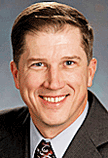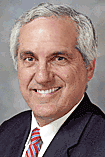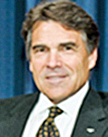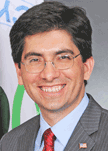Who Protects the Texas Environment? Hint: It Isn’t the State Agency That’s Supposed To
Investigative Report by Greg M. Schwartz
The Texas Commission on Environmental Quality’s mission statement says the agency “strives to protect our state’s human and natural resources consistent with sustainable economic development. Our goal is clean air, clean water, and the safe management of waste.” But the agency’s numerous critics charge that the environmental protection of Texas is repeatedly trumped by politically motivated management decisions concerned only with the economic development part of the equation.

“There is so much dirt on the agency and most of it has never been investigated,” says Neil Carman, clean air director for the Sierra Club’s Lone Star Chapter, based in Austin. From 1980 to 1992, Carman worked as an investigator and inspector for the Texas Air Control Board, a predecessor agency that was merged into what is now the TCEQ. Carman says he has a list of criminal cases against the TCEQ that have never been pursued, compiled from trading war stories with other investigators around the state. One of the primary areas of malfeasance Carman cites is the TCEQ’s air permitting system.
“TCEQ issued more than 150 state flexible air permits from 1995-2009 to major industrial plants by using an illegal permitting program that circumvented the Clean Air Act,” Carman says. These plants include many large industrial sources of toxic air pollutants, particulate matter, ozone-forming compounds, acid rain-producing gases, and haze-forming chemicals. The U.S. EPA Region 6 headquarters listed 142 plants in Texas in a September 25, 2007, letter that was sent to companies. The letter indicated the need for grandfathered, industrial plants that hold so-called “Flexible Permits” to reduce pollution and comply with the Clean Air Act.
Carman authored a 1999 report on behalf of the Sierra Club and the Galveston-Houston Association for Smog Prevention. The report identified about 1,070 Texas plants partly or totally grandfathered under the state law known as the Texas Clean Air Act.
“We have a permitting system that creates enforcement nightmares,” Carman says. He said the TCEQ has issued somewhere around 86,000 permits for industrial plants and facilities since 1971, and only denied about 15. Eighty-six thousand permits over 40 years averages out to 2,150 a year—more than eight every single day. Carman says the incredulous number comes directly from the permit numbers assigned by the TCEQ.
“People are shocked when they hear about all the air permits being more than 86,000—and that is a dated total. But that is good for ‘bidness’ in Texas. They issue this stuff like candy, every day, state
wide. … They’vegot an army of permit engineers,” says Carman, who adds that the number is probably more like 87,000 now, since 86,000 was topped in 2008.
Carmen says that in 1995, the Texas Legislature, under then Governor George W. Bush, authorized the flexible permit system for grandfathered polluting plants, enabling them to “to put a permit on grandfathered facilities without doing much. … They didn’t want to have to comply with the Clean Air Act.”
Carmen says the stakeholder process that he was a part of to advise on the situation “was sabotaged and torpedoed.”
“Our TCEQ stakeholder meetings and discussions during 1994-1995 were sabotaged and torpedoed when the refineries and other companies—who had representatives in the stakeholder group—went behind our backs to the Legislature with a bill to legalize Flexible Permits, rather than go through the TCEQ’s regulatory process to draft a new air permit language approving the Flexible Permits.
“A number of the public stakeholder members in the environmental community resigned from the TCEQ stakeholder groups because they were so pissed off this happened,” Carman said.
“Now EPA (under new leadership) is after the Flexible Permits because they are illegal,” Carmen says. He says that the permitting system has no mechanism for public participation, no modeling to project pollution levels, and has sham reviews that allow such facilities to average their worst pollution days into a plant-wide cap.

Texas leads the nation in air pollution and greenhouse gas production, making it the American ground zero in the political battle over global climate change. If the Lone Star State seceded to become its own country, it would become the seventh-largest polluting country in the world, says Luke Metzger, director of Environment Texas, a statewide citizen-based environmental advocacy organization.
“The thing we’ve cited the most (in criticizing the TCEQ) is the enforcement program,” Metzger says. He cites a 2003 State Auditor’s Report indicating that the TCEQ “does not consistently ensure violators are held accountable.” The report also said that TCEQ’s “enforcement function does not: consistently issue enforcement orders or settle enforcement cases within its required timeframes; calculate penalties accurately; or fully collect delinquent penalties.” But the state auditor’s office has no enforcement arm and a spokesperson was clueless when asked who, if anyone, was tasked with such enforcement.
The TCEQ defends its record.
“We disagreed with many of the (State Auditors Office’s) 2003 findings but improved many of our processes as a result of an internal review that began in late 2004,” says TCEQ spokesman Andy Saenz. He said improved processes included accelerated enforcement time lines and increased accountability for timeliness of enforcement actions; establishment of a field citation program for certain violations; and improved delinquent penalty collection procedures. Saenz said the volume of effective enforcement actions and associated penalties has also increased significantly in the past five years.

TCEQ Chairman Bryan Shaw is well-aware of the criticism his Austin-based agency faces. When he appeared on a Texas Public Policy Foundation (TPPF) panel discussion in Austin this past February titled, “New Ozone Standards: The Texas Challenge,” he said the TCEQ enforcement system “is just misunderstood, not broken.”
“I would offer that the opposite is true,” Shaw said, regarding allegations that the TCEQ is lax in enforcement. He went on to say the state’s mission is to customize its approach “to get the (economic) success we’ve seen.”
The health of the state economy is certainly a valid concern, particularly with the historically foul conditions that have plunged the nation into its worst economic crisis since the Great Depression. But at what price does the public health suffer?
A rundown of troubling decisions at the agency could fill a book. Here is a small sample of the more notable instances in recent years in which the TCEQ’s actions have come into serious question. The agency:
• Enforced few or no penalties for industrial plants along the Houston Ship Channel that repeatedly exceeded toxic pollution limits;
• Refused to hold public hearings over the high levels of toxicity spewing from a cement plant in Midlothian;
• Granted a highly questionable permit to the Andrews County low-level nuclear waste dump in West Texas, over the objections of the agency’s own scientists; and
• Approved the controversial re-permitting of the ASARCO copper smelter in El Paso (a decision that was later blocked by the EPA). This latter decision has the TCEQ embroiled in a contentious legal battle with a state senator, a battle with potentially global implications. (Also see Dallas Morning News story.) (This link is no longer functional.)

In the ASARCO case, State Sen. Eliot Shapleigh (D-El Paso) has been a relentless watchdog for his district in challenging the TCEQ and Tucson, Arizona-based ASARCO LLC, a subsidiary of diversified mining firm Grupo México, over the re-permitting of the copper smelter in his district. Shapleigh led a vain struggle in the Texas Senate to block Bryan Shaw’s appointment as the TCEQ’s chairman, but Shaw was confirmed by a 22-7 vote. It would have taken 11 votes against to scuttle the appointment.
Shapleigh doesn’t mince words when it comes to his disgust with the agency.
“When it comes to emissions, TCEQ has already seceded from America. Polluters have captured and deeply corrupted this agency … to the point that the chairman meets in secret with the polluter lobbyists,” says Shapleigh, referencing Governor Rick Perry’s 2009 rhetoric about potential secession as well as the state’s Flexible Permit system that has enabled companies to avoid complying with the federal Clean Air Act.
Shapleigh trumpets billing records obtained from ASARCO’s law firm, Baker Botts LLP, that became public in ASARCO’s bankruptcy. The records showed what Shapleigh says are repeated, illegal ex parte communications between the firm and the TCEQ staff and commissioners. The senator has sued the TCEQ to gain access to the records of those meetings (with the Environmental Defense Fund fronting the legal bills).
In legal terms, ex parte refers to situations in which only one party appears before a judge or decision maker. The ex parte communications at issue occurred leading up to the ASARCO permitting decision in February 2008. Shapleigh argues that this gave ASARCO an inside track to the commissioners without affording the same opportunity to other parties that contested the permit. Records obtained by Shapleigh show that the ex parte communications took place between an ASARCO lobbyist employed by Baker Botts and then-TCEQ Chairman Buddy Garcia. Shapleigh believes the records of these meetings will lead to a criminal investigation of high-ranking TCEQ officials.
Both a state district court and the Texas attorney general have ruled that the TCEQ must release these records. The agency is now appealing to the state’s Third Court of Appeals, claiming executive privilege, the discretionary right to withhold information from lawmakers.
Although the governor appoints the TCEQ’s three commissioners, the TCEQ is not a constitutionally derived agency. It was created by the Legislature. Shapleigh and his legal team have therefore argued that no such executive privilege exists and that the “legislative purpose exception” gives legislators the right to see these documents.
How long it takes the get a ruling from the court is of potentially critical importance to the outcome, since Shapleigh is not running for re-election and will no longer be a state senator come next January. Shapleigh’s legal staff says there’s no precedent for what would happen to a case if a plaintiff legislator is no longer in office before it’s decided. So the fate of the case could enter a nebulous gray area if it drags on into 2011, which highlights the importance of the case being ruled on sooner rather than later.
“The legal opinion from our attorneys is that my successor is a party of interest (on the case),” Shapleigh says. The senator noted that the Democratic contender for his seat, former El Paso County District Attorney Jose Rodriguez, has a strong environmental record. Shapleigh says he would expect Rodriguez to continue the case if he defeats Republican Dan Chavez. The popular Austin political blog, Burnt Orange Report, has cast Rodriguez as a prohibitive favorite, noting that El Paso County is overwhelmingly Democratic and that Chavez has never won an election.
A member of Shapleigh’s legal team says that while the appeal theoretically could take up to two years, it probably won’t. He said three of the six justices on the court sit on the panel to rule on oral arguments and, in this case, two of the three are Democrats. If the TCEQ is hit with an unfavorable ruling, the agency could further appeal to the state’s Supreme Court.
Editor’s note: On April 13, 2010, the Third Court of Appeals affirmed the lower court’s decision to require disclosure of the documents to Senator Shapleigh.
Shapleigh’s assertion that the TCEQ has already seceded from America when it comes to emissions (due to willful noncompliance with the Clean Air Act) raises a critical global issue stemming from the situation in Texas.
“The ASARCO case is the roadmap for how polluters have captured and corrupted a Texas agency, the campaign of Rick Perry, and the emissions profile of the world,” says Shapleigh. “Rick Perry wins if the truth is blocked. If the secrets at TCEQ come to the public, the public will be outraged.”
When queried on why the TCEQ seeks to withhold these documents when it only makes it look like the agency does indeed have something to hide, TCEQ spokesman Terry Clawson merely reiterated the agency’s statement made following Shapleigh’s February press conference about the case.
“While we do not comment on pending litigation, obviously the TCEQ takes exception to the senator’s assessment of the agency and his accusations,” Clawson wrote in an e-mail.
In his recent campaign commercial, Perry preaches to voters about how he’ll keep the feds from messing with Texas. But if Shapleigh’s suspicions about criminal misdeeds by the TCEQ are proven true, then it will show that it’s Perry and his cronies who are the ones that are messing with Texas.
Shapleigh characterizes the situation with ASARCO as “the most threatening air permit in the world,” saying it exposes the way that things have been done in Texas. The lax environmental regulation and unenforced emissions standards make Texas the USA’s most polluting state and a key battleground in the fight against global climate change.

Andy Wilson, policy analyst for global warming and campaign finance reform in Public Citizen’s Texas state office, emphasized the importance of the Lone Star State in the bigger picture.
“Because Texas is by far the most polluting of the states, what happens in Texas matters not only nationwide but worldwide,” Wilson says. “What happened with the ASARCO case was TCEQ ended up wringing their hands and saying, ‘We don’t even know if we can legally turn down this permit application.’ If the agency that is supposed to protect Texans from dirty air and water doesn’t even know if it can stop one of the worst polluters from starting up their operations again, something is seriously broken.
“It’s like TCEQ never met a permit it didn’t like,” Wilson says. “The questions asked by the agency are never: ‘Do we need this facility? What are the cost-benefits to health and quality of life? What are the cumulative impacts of permitting all of these new sources of pollution?’”
Like Shapleigh, Wilson and Public Citizen also point a finger at Rick Perry as a major culprit in undermining responsible environmental compliance in Texas.
“Rick Perry’s campaigns are funded by—among a lot of other bad actors—the big polluters. Follow the money. When an oil or gas company gives money to the governor, it’s not out of the kindness of their hearts. Whether there are implicit strings attached to donations or not, it doesn’t matter. You can see what a decade of Perry’s policies at TCEQ have wrought, including a TCEQ commissioner (Bryan Shaw) who even questions the validity of what every climate scientist in the state of Texas believes,” says Wilson, referring to Shaw’s dissent against the scientific community’s consensus that greenhouse gases caused by humanity do contribute to global warming.
The website of Project Vote Smart, which tracks campaign contributions and aggregates the numbers for major sectors of the economy, shows that the Energy and Natural Resources sector gave Governor Perry $2.4 million in 2002, $1.2 million in 2004, $2.4 million in 2006, and $1.3 million in 2008—more than $7.4 million in all.
“Rick Perry uses those campaign dollars to endear himself to the most reactionary elements within his own political party by making inaccurate statements about climate science and suing the EPA,” Wilson says.
Perry and Attorney General Greg Abbott have filed suit to overturn the EPA’s finding that greenhouse gases are a threat to public health. Such a finding sets the stage for regulation of the gases that scientists have linked to global climate change. Texas leads the nation in carbon emissions. Perry argues that that curbs on greenhouse gases like carbon dioxide could cost state businesses and jeopardize jobs. The suit argues that the EPA based its finding on faulty science, but many observers and pundits immediately labeled this a frivolous lawsuit.
“All of this reactionism isn’t going to help anyone,” Wilson said. “The EPA has already said that TCEQ’s Flexible Permitting process is unacceptable, and they are continuing to review a backlog of complaints against TCEQ that racked up, conveniently, during the Bush Administration. The more (Texas policymakers) bluster, the worse shock we’re going to be in for when we actually have to comply with federal clean air and water standards.”
Wilson says the good news is that it doesn’t have to be this way, citing how Texas cut CO2 output by four percent between 2005 and 2007 (before the recession even started—later results are not available) by being a leader in the wind industry and trying to tackle energy efficiency.
He claims Texas could cut CO2 output by two percent per year for the next 10 years by: setting a more aggressive goal for installing solar power; continuing to build wind power facilities; using money from the Texas Emissions Reduction Program to subsidize the purchase of more fuel-efficient cars; building mass transit instead of more toll roads; and being smarter about energy efficiency.
“Most of these policies, especially those which favor efficiency (using less oil, gas, and electricity for the same outcome), will save consumers money. (The cost of) Wind (power) already undercuts some traditional power plants and provides a hedge against spikes in the cost of fossil fuels, so we can switch to cheaper, cleaner, and cooler ways of doing business in our state. There is no downside to any of this,” says Wilson. “And guess what—two percent per year for 10 years is 20 percent by 2020, which is at least approaching what our best science tells us we should do. That might not be the breaking point that puts our CO2 levels down to a safe level, but it’s a good start.
“What’s the first rule when you find yourself in a hole? Quit digging. TCEQ keeps trying to toss people shovels.”
On the flip side, the arguments against stricter environmental regulation are typically based on economic fear-mongering. The fact sheet distributed at the Texas Public Policy Foundation’s February panel discussion on ozone standards claims that “if pending federal legislation like Waxman-Markey (HR 2454: American Clean Energy and Security Act of 2009) were enacted, those trends (of Texas’ economic growth in the past decade) would be reversed and continued economic growth would become impossible.”
Shapleigh says he’s heard these arguments for years and that they don’t stand up.
“Toxic polluters have made untrue claims like that for a century. ASARCO bullied El Paso for 100 years, saying good jobs will leave (if the company doesn’t get what it wants). Now we have a $250 million mess and ASARCO contaminants are affecting our job profile,” Shapleigh says.
The $250 million figure comes from discussions Shapleigh says he’s had with EPA officials. A remediation cost of only $52 million has been agreed upon by the EPA, TCEQ and ASARCO. Shapleigh countered that agreement with a letter to the Texas attorney general’s office, saying that $52 million would do only the “bare minimum” to rehabilitate the site and would severely limit future use of the land. He also noted that it was the “Bush-era EPA” that agreed to that figure.
Some environmentalists in Texas are hopeful that the Sunset Advisory Commission’s review of TCEQ taking place this year could lead to changes in the agency. Shapleigh quickly dismissed such a notion, saying he believes the powers that be have already co-opted the process. He may have a point. The public testimony on the TCEQ sunset review is not scheduled until mid-December—right before the holidays—and the decision is scheduled for January 12.
Where should the line be drawn between economic concerns and environmental protection? The Texas Public Policy Foundation’s fact sheet—based on a study by The American Council for Capital Formation (ACCF), whose goals are “strong capital formation, a balanced regulatory regime, and cost-effective environmental policies,” claims that enactment of the Waxman-Markey climate and energy bill would cause Texas to lose from 144,000 to 196,000-plus jobs by 2030. It also states that by 2030, gas prices could rise 26 percent, natural gas prices could rise as much as 73 percent and that residential electricity rates could rise by 50 percent.
Public Citizen’s Andy Wilson objects to these projections. He says, “The TPPF has no transparency in the economic models they’re using … so there’s no way to verify that this isn’t just a garbage in, garbage out study,” said Wilson. “ACCF did a whole series of these type of sham studies last year and the year before, and they used non-transparent, non-peer-reviewed economic models. Their assumptions are not only suspect, but probably wrong. … And let’s be honest, it’s paid for by people who have an interest in propagating the status quo.”
The fact sheet goes on to claim that the Texas gross state product could decline by $30 billion to $41 billion by 2030, reducing state revenues by $2 billion to $3 billion. It was against this backdrop that TCEQ Chairman Bryan Shaw and State Rep. Warren Chisum (R-Pampa) appeared with Michael Taylor, deputy district director for U.S. Rep. Joe Barton (R-Fort Worth), and Derek Seal (former TCEQ general counsel) on the TPPF’s February panel to discuss—and mainly criticize—the EPA’s proposed stricter ozone standards.
“My assessment is that EPA has mistaken a causal relationship for what is actually correlation,” Shaw said, in reference to the recent EPA finding that gases blamed for global warming threaten public health. Shaw was echoing sentiments from Governor Rick Perry’s federal lawsuit filed in February to prevent regulation of greenhouse gases.

In announcing the lawsuit, Perry said, “The EPA’s misguided plan paints a big target on the backs of Texas agriculture and energy producers and the hundreds of thousands of Texans they employ. This legal action is being taken to protect the Texas economy and the jobs that go with it, as well as defend Texas’ freedom to continue our successful environmental strategies free from federal overreach.”
“You’re spending money chasing the wrong rabbit,” Shaw said, in regard to proposed efforts to reduce smog limits to 60-70 parts per billion (ppb). “It will offer the illusion of environmental protection while actually costing us time, money and jobs.” He believes the current level of 76 ppb is adequate.

Elena Craft is an air quality specialist with the Environmental Defense Fund in Austin. She disagrees with Shaw’s assessments.
“There is no scientific foundation for the position that TCEQ has proffered,” Craft says. “The evidence is overwhelming in demonstrating the correlation between high ozone days and hospital admissions. Shaw makes it seem as though the relationship between high ozone days and hospitalizations is some kind of red herring—this is simply not true.
“As TCEQ fails to provide a sound scientific rebuttal of the (EPA’s Clean Air Scientific Advisory Committee) consensus review, the only logical explanation for TCEQ’s position is that the position is one based on policy and/or politics, and not science,” Craft says.
“Commissioner Shaw is charged with protecting public health of all Texans. His decisions directly impact the day-to-day lives of Texas citizens. His carefree approach in managing this responsibility is at the minimum irresponsible and at the maximum a serious threat to public health,” Craft says.
The debate with regulatory agencies is only half the battle over clean air issues though. The TCEQ clearly has some political support for its positions, starting with Governor Rick Perry but also including many state and federal legislators who agree with Perry and Shaw’s approach. Texas Public Policy Foundation panelist Michael Taylor’s boss, U.S. Rep. Joe Barton, the ranking Republican member of the House Energy and Commerce Committee, was listed as one of 17 “Climate Killers” in a January 6, 2010, Rolling Stone article that labeled these polluters and climate change deniers as “the planet’s worst enemies.”
“This is sort of a multi-pronged attack on states that don’t agree with the most stringent environmental policies,” Taylor said, during the panel discussion about the proposed new ozone standards. “EPA, and this current administration, is taking a very top-down approach … (which) … is currently not achievable through using the legislative process.”
Taylor said that Republicans “have to win back the House and the Senate” to pass significant changes to the Clean Air Act. This sentiment highlights a pivotal political battle taking place this year.
The new EPA Region 6 Administrator, Alfredo “Al” Armendariz, Ph.D., is a popular choice with Texas environmentalists. He has led the EPA’s new crusade to crack down on the Lone Star State’s noncompliance with the Clean Air Act.
The Sierra Club’s Neil Carman says that the EPA’s current political capital could hinge on the outcome of the 2010 midterm elections.
“He has to be careful about sticking his neck out,” Carmen says of Armendariz. “Right now it’s warp speed ahead at EPA, but if the Democrats lose seats in the fall … EPA will start to back away.”

EPA Administrator Lisa P. Jackson didn’t mention Texas by name in her March 8, 2010, speech at the National Press Club in Washington, D.C. But it seemed that the economic fear-mongering being bandied about during the February Texas Public Policy Foundation panel discussion was exactly the type of talk she was referring to in her pointed comments.
“Well-conceived, effectively implemented environmental protection is good for economic growth. Let me repeat that: environmental protection is good for economic growth,” stated Jackson. … “A weak environment means a weak consumer base. And unhealthy air means an unhealthy atmosphere for investments.”
The woman that Rolling Stone called “the most progressive EPA chief in history” in a recent profile that dubbed her “The Eco-Warrior,” continued to hammer against the argument that strong environmental protection and a strong economy can’t go together.
“(Smart environmental protection) creates a need—in other words, a market for clean technology—and then drives innovation and invention—in other words, new products for that market. This is our convenient truth: smart environmental protection creates jobs,” said Jackson.
Jackson cited numbers indicating that over the past 30 years, emissions of six dangerous air pollutants that cause smog, acid rain, lead poisoning and other environmental insults decreased by 54 percent, while gross domestic product grew by 126 percent, with innovation being the key.
“The economic costs of unchecked climate change will be orders of magnitude higher for the next generation than it would be for us to take action today. … It’s time to put to rest the notion that economic growth and environmental protection are incompatible. It’s time to finally dismiss this false choice.”
Jackson was certainly targeting the industrial crowd when she said, “… ever-expanding economic opportunity is not possible without sustainability. Without protection for the water, air and land that people depend on, we can only go so far. Without clean energy, the global economy will be running on empty within our lifetimes.”

The November 2009 appointment of Armendariz as the administrator of the Dallas-based EPA Region 6—which oversees Texas, Louisiana, Arkansas, New Mexico, Oklahoma, and 66 tribal nations—signifies an end to a status quo in Texas dating at least back to 1995. Armendariz, an associate professor at Southern Methodist University, where he taught environmental and civil engineering before joining the EPA, has been a critic of the TCEQ in the past. His selection for the post at the EPA was cheered by environmentalists across Texas.
The Austin environmental community gave a reception for Armendariz at El Sol Y Luna on Sixth Street in February. Tom “Smitty” Smith, director of Public Citizen’s Texas office, introduced Armendariz as just the right person for the job.
“When the opening came, we all thought, ‘Who would be our dream candidate?’ And we all thought of Al,” Smith said.
Armendariz addressed the audience and gave a clear indication that it was a new dawn at the EPA.
“Lisa (Jackson) clearly wanted to pick somebody who had the support of grassroots environmental groups (in Texas),” said Armendariz. “I want you to realize that this regional office is now your regional office.”
He went on to note that he’d started to really appreciate the concerns about air quality in the region because, “I probably spend half of my time (in overseeing the entire region) on Texas air issues.”
“It took almost 20 years to dig us into this hole,” Armendariz said. “It’s going to take a little time to dig us out. … The way things have been done for the last 15 years is going to end—and it’s going to end soon,” said Armendariz, a comment that received a round of massive applause. “We have to be careful that we do it properly, so that we win all the arguments we want to win.”
The Sierra Club’s Carman says the 15-year reference in Armendariz’ address was to the Flexible Permit system started in 1995. He had talked to Armendariz earlier, and Carman said the administrator told him that he initially had no idea “what a horrible mess it is” with the Flexible Permit system.
When asked afterward about the increasingly testy relationship between the EPA and the TCEQ, Armendariz didn’t back down.
“We’ve told TCEQ that we do have some concerns about how they’re running some of their programs, especially clean air,” Armendariz said. “I am optimistic that we will reach an agreement relatively soon.”
This Investigative Report was made possible by contributions to The Austin Bulldog, which operates as a 501(c)(3) nonprofit. The Austin Bulldog has many other investigative projects waiting to be funded. You can bring these investigations to lifeby making a tax-deductible contribution.
This report is licensed under a Creative Commons Attribution 3.0 United States License, and can be republished with attribution and a link to The Austin Bulldog. If you re-use this report, please let us know by e-mailing [email protected].







